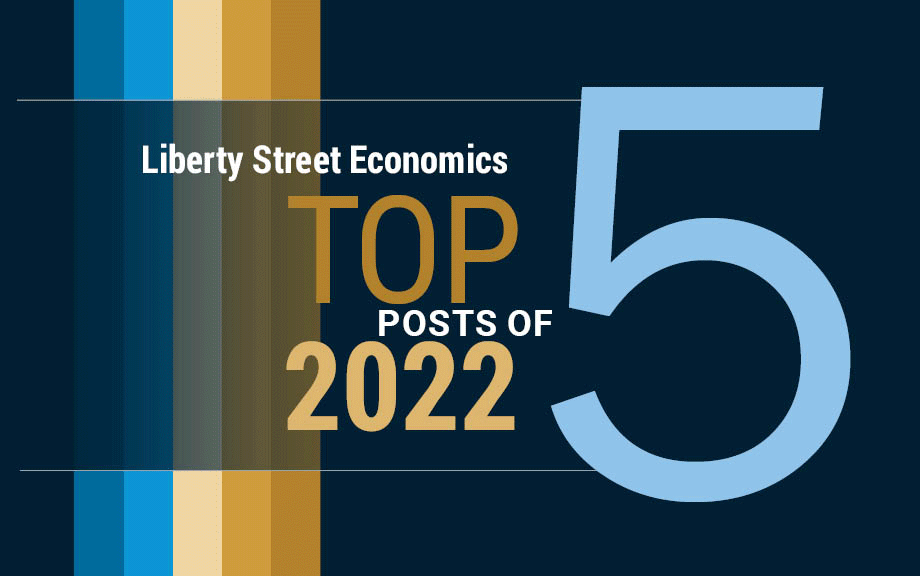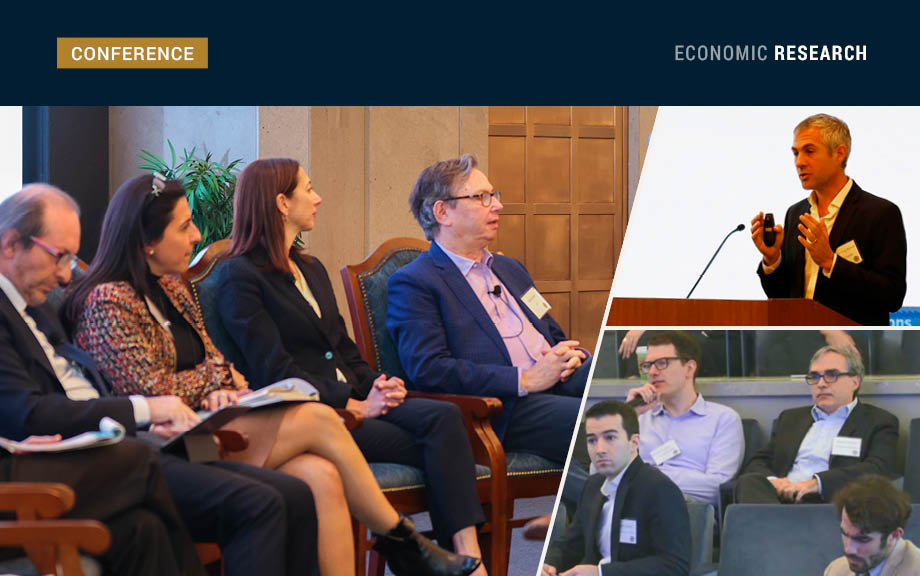Supply Chains, Student Debt, and Stablecoins—The Top 5 Liberty Street Economics Posts of 2022

“Kitchen table” issues were on the minds of our readers in 2022, though what was labeled as such was perhaps a bit broader than in the past. Supply chains—now firmly placed on the radar of Main Street—were the subject of the year’s top post by number of page views and accounted for three of the top five (we’ll consider them as one for this roundup). Student debt forgiveness and inflation were also in the news, drawing readers to our preview of various possibilities for the (subsequently announced) federal student loan forgiveness program and a quarterly update of a New York Fed economic forecast model. Posts on more technical topics were popular as well, including an update on the Federal Reserve’s balance sheet “runoff” and a discussion of stablecoins. Underscoring their broad appeal, the year’s top two posts rank among the top five in the history of Liberty Street, which dates back to 2011. Read on to see which posts resonated most with readers.
Can Decentralized Finance Provide More Protection for Crypto Investors?

Several centralized crypto entities failed in 2022, resulting in the cascading failure of other crypto firms and raising questions about the protection of crypto investors. While the total amount invested in the crypto sector remains small in the United States, more than 10 percent of all Americans are invested in cryptocurrencies. In this post, we examine whether migrating crypto activities from centralized platforms to decentralized finance (DeFi) protocols might afford investors better protection, especially in the absence of regulatory changes. We argue that while DeFi provides some benefits for investors, it also introduces new risks and so more work is needed to make it a viable option for mainstream investors.
SCE Labor Market Survey Shows Average Reservation Wage Continues Upward Trend

The Federal Reserve Bank of New York’s November 2022 SCE Labor Market Survey shows a rise in the average reservation wage—the lowest wage respondents would be willing to accept for a new job—to $73,667, its highest level since the series began in 2014. Respondents’ satisfaction with wage compensation, non-wage benefits, and promotion opportunities at their current job all improved in November compared to July. Regarding expectations, the average expected wage offer (conditional on receiving one) also increased and reached a new high.
Highlights from the Fifth Bi‑annual Global Research Forum on International Macroeconomics and Finance

The COVID-19 pandemic, geopolitical tensions, and distinct economic conditions bring challenges to economies worldwide. These key themes provided a backdrop for the fifth bi-annual Global Research Forum on International Macroeconomics and Finance, organized by the European Central Bank (ECB), the Federal Reserve Board, and Federal Reserve Bank of New York in New York in November. The papers and discussions framed important issues related to the global economy and financial markets, and explored the implications of policies that central banks and other official sector bodies take to address geopolitical developments and conditions affecting growth, inflation, and financial stability. A distinguished panel of experts shared diverse perspectives on the drivers of and prospects for inflation from a global perspective. In this post, we discuss highlights of the conference. The event page includes links to videos for each session.
The New York Fed DSGE Model Forecast—December 2022

This post presents an update of the economic forecasts generated by the Federal Reserve Bank of New York’s dynamic stochastic general equilibrium (DSGE) model. We describe very briefly our forecast and its change since September 2022.
Does Bank Monitoring Affect Loan Repayment?

Banks monitor borrowers after originating loans to reduce moral hazard and prevent loan losses. While monitoring represents an important activity of bank business, evidence on its effect on loan repayment is scant. In this post, which is based on our recent paper, we shed light on whether bank monitoring fosters loan repayment and to what extent it does so.











 RSS Feed
RSS Feed Follow Liberty Street Economics
Follow Liberty Street Economics